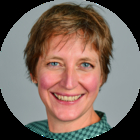Post-2015: recharging governance of United Nations development
Helgason, Kristinn Sv. / Silke WeinlichBriefing Paper (6/2015)
Bonn: German Development Institute / Deutsches Institut für Entwicklungspolitik (DIE)
The post-2015 development agenda will constitute a different mission for UN Development than the current one driven by the Millennium Development Goals (MDGs). Unlike the MDGs agenda, the new sustainable development goals (SDGs) aim to integrate the economic, social and environmental pillars of sustainable development while emphasising global challenges to a greater extent. The growing interconnection between local and global development challenges will be a key feature of the SDGs.
Current governance arrangements of UN Development, however, impose a constraint on the organisation’s ability to meet the integration requirements of the SDGs.
To deliver on the post-2015 development agenda in an integrated and coordinated manner, UN Development will require governance capacity that can foster policy coherence and interoperability in programming and operations. This means that governing boards will have to be able to coordinate their work more effectively than in the past, with a view to balancing agency and system-wide interests, as well as the local and global perspective in their decision-making. Such changes required in the capability of governing bodies also offer Member States the opportunity to rethink what constitutes legitimacy in governance.
Three options are particularly proposed to address the governance demands of the post-2015 development agenda:
- ECOSOC as a system-wide governing body: On the basis of a system-wide strategy, the UN Development Group (UNDG) becomes formally accountable to ECOSOC and the General Assembly for the implemen-tation of system-wide objectives. This would strengthen horizontal governance of development operations;
- Fulltime Joint Executive Board: Merging the four executive boards of the funds and programmes with major development operations; and
- Fulltime Development Board: A single board for the governance of operational activities of the 19 funds and programmes reporting to the central bodies of the General Assembly and the Economic and Social Council (ECOSOC).

